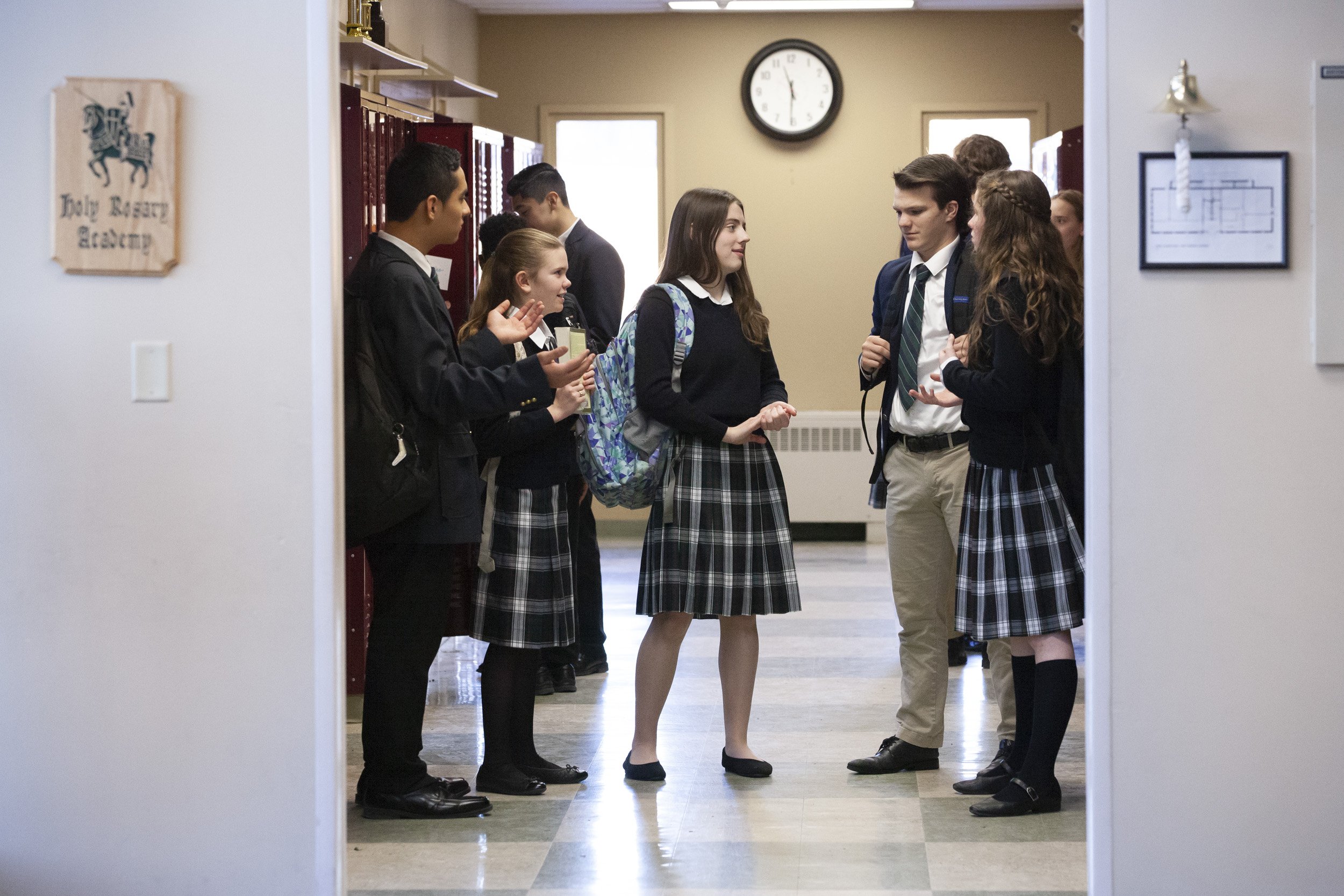
Rhetoric Stage: Grades 9 - 12
What does this mean for my child?
Holy Rosary Academy high school students take four years of math: Algebra, Euclidean Geometry, Advanced Mathematics, and Calculus. They master the study of Latin, introducing them to the language of Homer and Aristotle and providing the foundation for all the Romance languages. They study Scripture, moral theology, Church history, and apologetics. They revisit chemistry, physics, and biology in greater depth, performing labs and executing science fair projects. They explore the human body in anatomy & physiology. They perform advanced diagramming of sentences and identify elements of literature. They explore Shakespeare and craft analytical essays.
Unique to HRA, they engage in seminars: classes that read, analyze, and discuss crucial works of history and literature in Western Civilization, including The Odyssey, Oedipus Rex, Beowulf, Augustine’s Confessions, Canterbury Tales, Crime & Punishment, the Communist Manifesto, The Scarlet Letter, and the Narrative of the Life of Frederick Douglass. The high school education culminates in the thesis, in which juniors and seniors research a philosophical or theological question of their choice and defend a thesis paper written in the scholastic disputation format.
Inspired by its dedication to supporting parents, the primary educators of children, Holy Rosary Academy also offers upper school classes on a part-time basis for local homeschooling families of junior high and high school students who would like to complement their curriculum with access to our excellent faculty and our classical curriculum. Call the office for more information.
What is the Rhetoric Stage?
The Rhetoric Stage is the culmination of the Trivium. With the background knowledge provided in the Grammar Stage and the ability to analyze arguments provided in the Logic Stage, students learn and practice expressing themselves clearly, fluently, and succinctly on a daily basis. They are taught how to form a powerful, convincing argument, transform that into a fluid essay, and then develop and deliver an articulate, persuasive speech. Most importantly, they now synthesize all that they have learned heretofore. These moments when they form connections between subjects, realizing the unity of the truth, are more than eye-opening and can be life changing.


